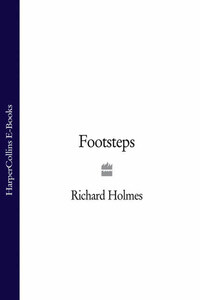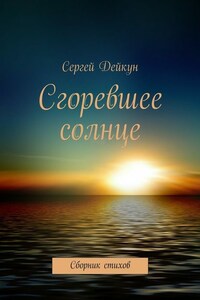All that night I heard footsteps: down by the river through the dark trees, or up on the moonlit road from Le Puy to Le Monastier. But I saw nothing except the stars, hanging over me where I wanted to be, with my head on a rucksack, and my rucksack on the grass, lying alone somewhere in the Massif Central of France, dreaming of the dead coming back to life again. I was eighteen.
I had started a travel-diary, teaching myself to write, and trying to find out what was happening to me, what I was feeling. I kept it simple:
Found a wide soft dry ditch under thorn hedge between the track and the little Loire. Here lit candle once more, studied ground for red ants, then set out bed-roll with all spare clothes between me and my waterproof cloak-sheet. Soon I was gazing up at stars, thinking of all the beats and tramps and travellers à la belle étoile from RLS to JK. Story of snakes that are drawn to body-heat and slide into your sleeping-bag. Cicadas and strange sounds river makes at night flowing over rocks. Slept fitfully but without disturbance from man or beast, except a spider in my ear. Saw a green glow-worm like a spark.
I woke at 5 a.m. in a glowing mist, my green sleeping-bag blackened with the dew, for the whole plateau of the Velay is above two thousand feet. I made a fire with twigs gathered the night before, and set water to boil for coffee, in a petit pots tin with wire twisted round it as a handle. Then I went down to the Loire, here little more than a stream, and sat naked in a pool cleaning my teeth. Behind me the sun came out and the woodfire smoke turned blue. I felt rapturous and slightly mad.
I reached Le Monastier two hours later, in the local grocer’s van, one of those square Citroëns like a corrugated garden privy, which smelt of camembert and apples. Monsieur Crèspy, chauffeur and patron, examined my pack and soaking bag as we jounced along through rolling uplands. Our conversation took place in a sort of no-man’s-land of irregular French. M. Crèspy’s patois and Midi twang battled for meaning against my stonewall classroom phrases. After initial skirmishing, he adopted a firm line of attack.
“You are walking on foot?” he said, leaning back into the depths of the van with one arm and presenting me with a huge yellow pear.
“Yes, yes. I am searching for un Ecossais, a Scotsman, a writer, who walked on foot through all this beautiful country.”
“He is a friend of yours? You have lost him?” enquired M. Crèspy with a little frown.
“No, no. Well … Yes. You see, I want to find him.” My chin streamed hopelessly with pear juice.
M. Crèspy nodded encouragingly: “The pear is good, n’est-ce pas?”
“Yes, it is very good.”
The Citroën lurched round a bend and plunged down towards a rocky valley, broken with trees and scattered stone farmhouses, with pink tiled roofs and goats tethered in small bright pastures where the sun struck and steamed. The spire of a church, perched on the far hillside, pointed the horizon.
“There is Le Monastier. Look! Perhaps your friend is waiting for you,” said M. Crèspy with great confidence.
“No, no, I don’t think so,” I said. But it was exactly what I hoped.
I rummaged in my rucksack. “You see, here is his book. It tells the story of his walk on foot.”
M. Crèspy peered at the little brown volume, and the Citroën swung back and forth across the road, the sound of rolling fruit growing thunderous behind us. I hastily propped the book up on the dashboard, being careful not to cover the St Christophe medal or the picture of Our Lady mounted above a cone of paper flowers. I ran my finger down the sketch map on the title page: Le Monastier, Pradelles, Langogne, Notre Dame des Neiges, Montagne du Goulet, Pic de Finiels, Le Pont-de-Montvert, Florae, Gorges du Tarn, St Jean-du-Gard—to me already magic names, a litany of hills and rivers, with a lone figure striding along them, laughing, beckoning, even mocking: follow! follow!














